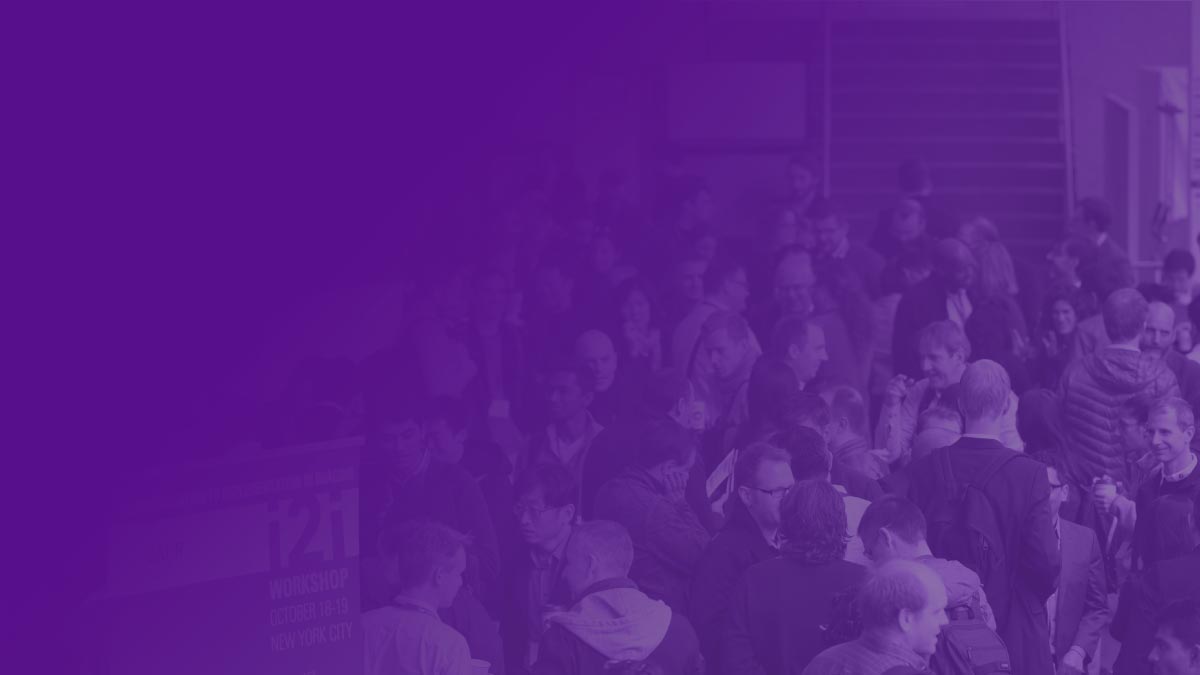
From Innovation to Implementation in Imaging: i2i Workshop.
The i2i Workshop brings experts from academia, industry, and tech to NYU Langone’s campus for discussions about the latest breakthroughs in imaging hardware, software, image analysis, and image-guided therapy.
At the i2i Workshop, we take the latest research breakthroughs as a point of departure to ask big questions about the future of biomedical imaging. Our inaugural meeting in 2016 featured sessions titled “our dream scanners” and “the information tsunami.” The 2018 workshop included sessions dedicated to portable MRI scanners and emerging flexible RF coil technologies. The 2023 sessions explored a broad look at vision, sight, and imaging across modalities, length scales, and domains of inquiry.
Two Days Packed with Science
The i2i Workshop packs two days chock full of scientific sessions and evening events. Plenaries, keynotes, talks, and poster sessions are held at NYU Langone Health. Evening events have involved dinner receptions on the East River, a cruise around New York harbor, and cocktails on the Intrepid, an aircraft carrier turned museum, permanently docked on the Hudson River.
Come Curious, Leave Inspired
After the 2018 and 2023 workshops, we asked attendees to rate their experience on a ten-point scale. Here are some of their comments.
Great variety of expert speakers.
9/10, i2i 2023
Very well organized, interesting topics, and engaging poster session.
10/10, i2i 2023
Interesting talks from various areas … well structured.
10/10, i2i 2023
Nice for networking.
10/10, i2i 2023
Great speakers, smooth experience, rewarding conversations, fun venues for the receptions.
10/10, i2i 2018
Excellent venue, great attendees and impressive social.
8/10, i2i 2018
Like a Gordon conference … the topics are interesting … a lot of interactions happen during the breaks.
10/10, i2i 2018
Diverse program of new innovations—stimulating.
9/10, i2i 2018
Very rewarding.
10/10, i2i 2018
I will definitely be planning on attending the next i2i Workshop.
10/10, i2i 2018
Workshop Chairs
- Riccardo Lattanzi, PhD
- Daniel Sodickson, MD, PhD
Workshop Staff
- Marisa Costello
- Michelle Koplik
- Ana Rejon, MS
- Pawel Slabiak, MA
Contact
i2iworkshop@nyulangone.org
We also hosted a low-field MRI hackathon.
Is it possible to create an open-source low-field MRI system in less than a week? We hosted a hackathon to find out.
On October 16-17 and 20-21 (two days preceding and following the i2i Workshop), four teams collaborated on developing low-field MRI hardware and software to image the hackathon phantom.
The teams were led by MRI experts from the Center for Biomedical Imaging at NYU Langone Health, the Antinoula A. Martinos Center for Biomedical Imaging at Massachusetts General Hospital, and the Biomedical Imaging and Bioengineering Institute at Icahn School of Medicine at Mount Sinai.
To learn more, read our story from the event or visit the hackathon documentation page.

